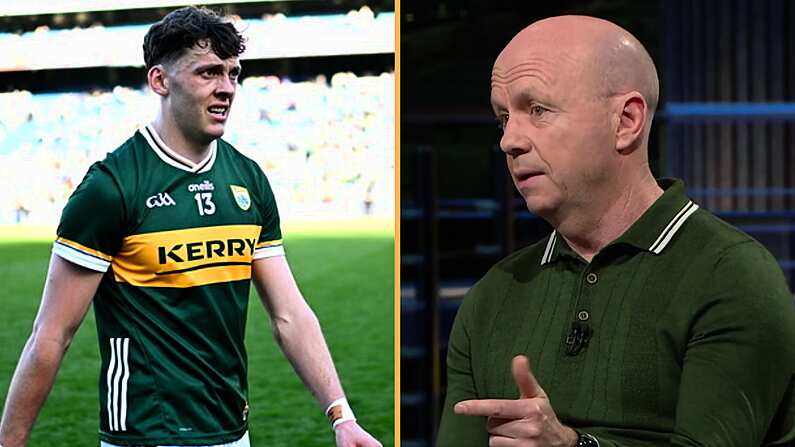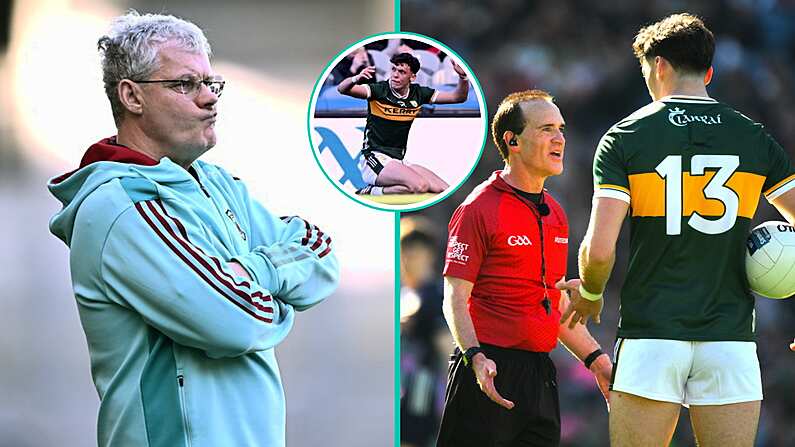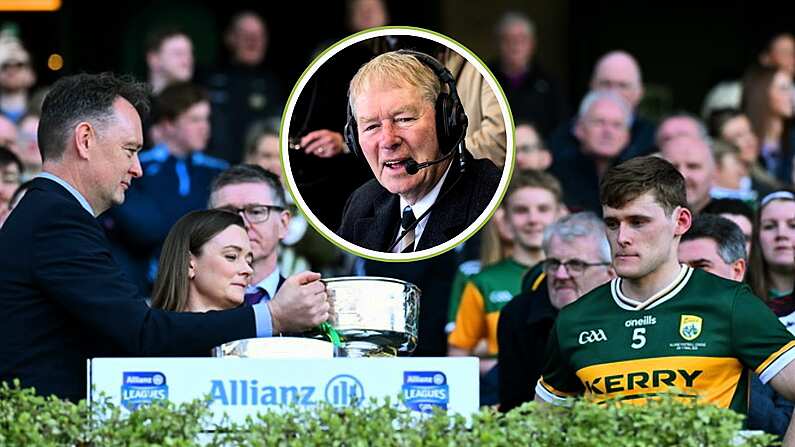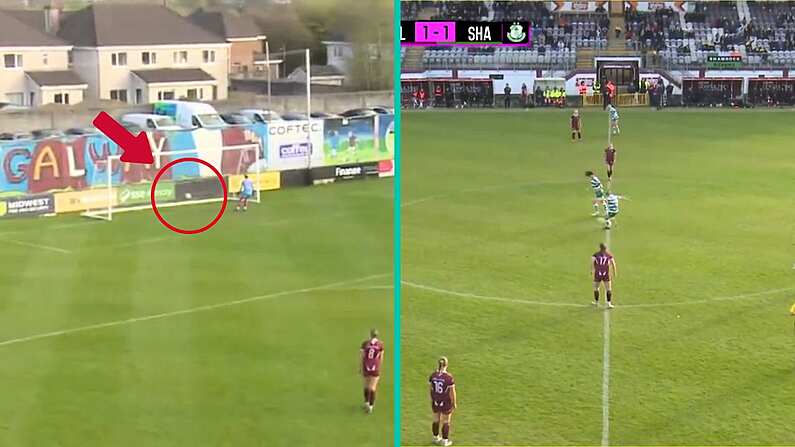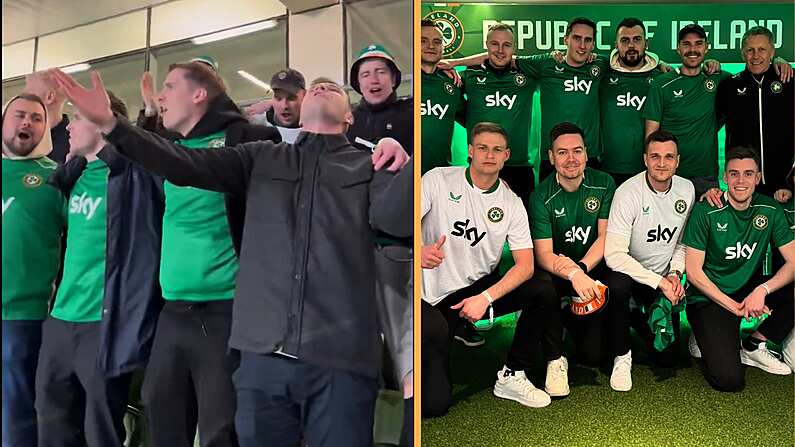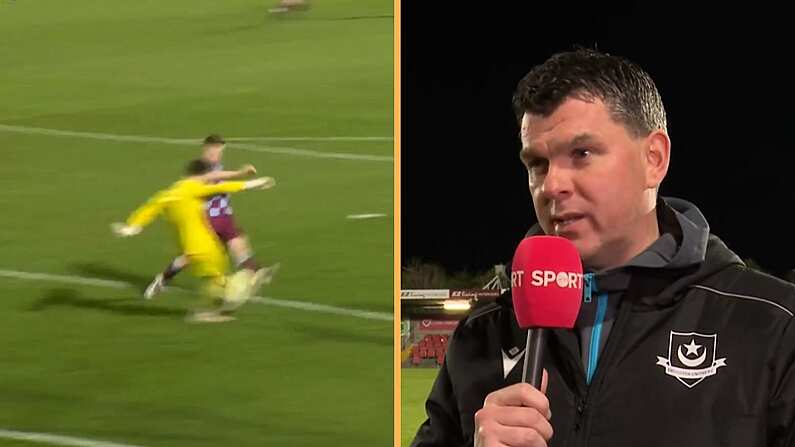Brendan Moloney knew it was time to move on. Others had different opinions, including Northampton Town, the club where he had spent the previous three-and-a-half years. They put a new deal on the table but he turned it down. More clubs were interested, their offers were rejected too.
Instead, last summer, aged just 29, he called time on the career which had seen him play right-back at eight English Football League clubs. Some had been permanent homes, some temporary, some permanent which turned out to be temporary.
There was no retirement announcement, no big farewell statement to Northampton fans who would have loved to see him stay. It was an Irish goodbye to life as a professional footballer.
Tired of no longer being able to reach his physical peak, the former Ireland U21 international was eager to get on with the next thing.
"I struggled a lot with three operations in my knee in the space of 18 months," he tells Balls.
"It was getting to a stage where I wasn’t training fully during the week. I’d go into a game knowing I wasn’t at my sharpest. I just think deep down that I knew it was time to have a look at things.
"Your career is never going to last forever. My gut was telling me to go down a different path and give that a try. I’m happy with my decision."
That different path was easily accessible, though one during his playing career he never thought he would take. While injured, the appeal of coaching increased.
Moloney and his family moved home to Kerry and he travelled back and forth to England to do his UEFA B-licence. That was completed in March. He's now in the waiting room to begin his UEFA A-licence. Obtaining that badge with the FAI is the preferred option but if necessary he will do it in England.
Hanging around isn't so bad. There are far worse places to linger before his next coaching course than the scenic Beaufort, his home village situated just off the road between Killarney and Killorglin.
The 30-year-old has returned to playing Gaelic football with his old club - the reigning All-Ireland junior champions. He was in the stand at Croke Park in February when the Kerry side thumped Sligo's Easkey in the final.
An interesting substitute for Beaufort last night was Brendan Moloney ex Notts Forest and a few more - now back home he can field a ball and some excellent kick passes that led to a couple of scores for @LiosAPhuca -they missed Mike Breen ( exams ) but this is good Mitchels side
— Mortimer Murphy (@MortimerMurphy1) May 12, 2019
"It was a great day out, a great weekend, actually," he tells. In the second chapter of his GAA career, the first lines have been appearances off the bench in two County League Division 2 games.
I started training away with Beaufort because I have a lot of school friends playing. I’m around from now until whenever I get on the course. It’s a good bit of craic. You train once or twice a week. There would be a game there every weekend or second weekend. It keeps you focussed.
An inclination as a kid to prioritise playing soccer with Killarney Athletic ahead of football with Beaufort is one reason why he became one of the Kingdom's few ever professional players. (There has been just one Kerry-born Irish senior international men's player. Tony O'Connell, now the Honourary Life President of Bohs, was born in Tralee.)
If Moloney was going to be spotted by a scout, he needed a shop window on the high street rather than one down the alleyway of Killarney Athletic. The club knew this too and it was arranged for him to join Dublin side, Belvedere. Fairview Park would be his Arnotts.
"I was getting trials with the Ireland u14s and U15s and they knew I had that chance to play over in England. Scouts didn’t come to Kerry.
"I used to get the train to Dublin. All the games would be on a Sunday. I’d get the very early train on a Saturday morning. They’d collect me at the station, I'd train, stay at one of the player’s houses and then play on a Sunday and then get the train down.
"I did that for a year. It was something that I needed to do. It was how I got spotted by Nottingham Forest.
"I went over at 16. It was a big change. You’re looking forward to it but when the actual day comes and you’re leaving, it hits. Looking back, the first six months were the toughest.
"When I was over there, there were other Irish lads and you could see that they were struggling. As a 16-year-old, you’re leaving your family, you’re leaving your friends; you probably feel like you’re missing out on a lot of things.
"Some people deal with it different to others. I’d come home for a couple of days, go back over, my family would come over. After a while, it just becomes a normal routine.
"It’s about how you are doing over there. If you are doing well and making progress, it becomes easier. It just all depends on how people look at it.
"The first year is about getting used to it, training daily. The second year at Forest, I started to get going."
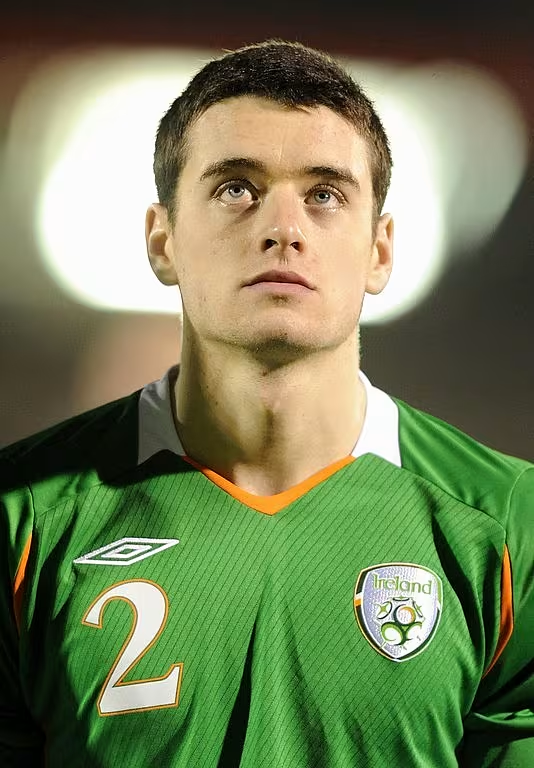
On St Patrick's Day 2007, an 18-year-old Moloney was given his Forest senior debut by Colin Calderwood when he stepped off the bench to replace Kris Commons in a League One game at home to Gillingham. The match finished 1-1.
Prior to that, he had travelled to games with the team but wasn't among the substitutes, one of the extras brought along in case someone picked up an injury during the warm-up.
12 years on and with Martin O'Neill now in charge at the City Ground, not much has changed with how Forest players are informed of the starting team. Just like O'Neill, Calderwood named his on the day. There was no time to let his family know about a possible debut.
I didn’t really have much time to reflect on it. It wasn’t like I was told the day before. I was just delighted to be on the bench, I wasn’t even thinking about coming on.
I remember it well, it was around the 85th minute. I was told to get ready and put the shirt on. I got five or six minutes. It was a day I’ll never forget. It’s something you dream about your whole life.
He started the first two games of the following campaign. Forest were still in League One and would be promoted back to the Championship that season.
There followed loan moves to Chesterfield - where he scored his first senior goal, a 20-yard cracker featured on Soccer AM (there exists the grainiest of grainy footage on YouTube); Rushden & Diamonds and, most notably, the short hop across the River Trent to Notts County.
Normally, a stint at a neighbouring League Two club would be unremarkable, but beyond their heritage as the oldest professional club in the world and being the inspiration for Juventus' famous kit, Notts County had just attained an additional reason for fame. In the summer of 2009, they were taken over by Munto Finance, what purported to be a wealthy Middle Eastern consortium.
Grand claims were made and a plan put in place to have the side playing Championship football in five years. Those ambitions appeared to have foundations.
Three years after he departed as England manager and two following his appointment as manager by the newly-moneyed Manchester City (Thaksin Shinawatra money, not Abu Dhabi money), Sven-Goran Eriksson was named Notts County Director of Football.
A fortnight before the takeover was confirmed, Moloney joined the club on a six-month loan. There followed some more high-profile acquisitions than the then 20-year-old.
The club transfer record was smashed to buy a 22-year-old Kasper Schmeichel from Manchester City. Sol Campbell (then 35) rejected approaches from Premier League clubs to sign a five-year deal at Meadow Lane.
"They were taken over by these so-called multi-millionaires when really they had nothing - it was all a bit of a scam," says Moloney.
In a BBC Panorama documentary titled 'Trillion Dollar Con Man', Eriksson said he began to feel all was not right when he was told the milk bill wasn't being paid. The club would end up with debts far greater than to just the milkman - £7 million in all.
"I remember Sol Campbell coming in for a couple of weeks, training and playing a game," Moloney recalls. He played alongside the former England international in Campbell's only game for Notts County.
I’d say, deep down, did he really want to be there. He was playing League Two football. They must have sold him some dream.
He quickly realised after two weeks that it wasn’t for him. We trained one day and came back to the stadium and next thing, everything - his boots - were gone. We never saw him again.
Despite the mess, Moloney wanted to stay. The club was going well and would end up getting promoted, but a transfer embargo placed on them meant the loan could not be extended beyond the initial six months.
Instead, he joined Scunthorpe, again on loan. They were a Championship team. Moloney was looking forward to testing himself at that level but his stay lasted just three games.
"We were playing West Brom away and after 20 minutes, Chris Brunt came in with a bad challenge, he caught my knee and it collapsed in; I did my medial ligament. I was out for five or six months. That was my season over."
It was January 2010 when he suffered that injury. He would return in time for pre-season but it would be the following March before he played again.
Ultimately, it didn't happen for him at Forest. Between making his debut in 2007 and leaving in January 2013, the club had six different managers: Colin Calderwood, Billy Davies, Steve McClaren, Steve Cotterill, Sean O'Driscoll and Alex McLeish. An ever-changing man in charge and a club in turmoil made it tough to nail down his spot.
I was in and around the team at Forest. I played 50 games but it was stop-start. The longest spell I got in the team was when we went to the playoffs under Billy Davies. Swansea beat us 2-1 over the two legs. Then the following season, we didn’t make the playoffs and he got sacked. Steve McClaren came in.
We went through a lot of managers - a lot of managers - and got taken over as well by foreign owners; there was a lot of change. I must have had a manager for every year I was there.
A week after his 24th birthday, he joined Bristol City. There was a friendly face in the manager's office.
"Sean O’Driscoll, he was the manager of Forest and on Stephen’s Day, we beat Leeds and were sixth in the league and he got sacked - that’s how crazy it was.
"In January, he got the Bristol job, I was running into the last six months of my contract. Alex McLeish was the [Forest] manager. He came in, I had a chat with him and said, ‘I have this opportunity and I’d like to go’. He said, ‘That’s fine’. I went down to Bristol with Sean O’Driscoll.
"I went there in January. They were struggling. We went down that year. We were in League One [2013/14] and that wasn’t going well. Sean O’Driscoll got sacked halfway through that year. We finished around mid-table in League One that year - the expectation had been to get promoted."
When Steve Cotterill was appointed as O'Driscoll's successor, Moloney's heart must have sunk. Cotterill was another familiar face from his time at Forest. Though, one less friendly than O'Driscoll.
After 18 months at Bristol City, Moloney left in search of minutes with Yeovil. It was a misstep.
"Under Steve Cotterill, when I had him at Forest, it was one of those situations where I knew I wasn’t going to play under him and he told me that.
"He wanted the Yeovil right-back (Luke Ayling), so I went the other way. That was the one move that never worked out. Probably one of the biggest mistakes I made was going to Yeovil. I was there for six months. I didn’t enjoy the place. The manager [Gary Johnson] didn't enjoy me, I didn’t enjoy him."
Moloney thinks back on those six months philosophically: if he had not taken that wrong turn, he might not have made the best move of his career - Northampton Town.
Initially, he joined the League Two side on loan in January 2015. A month later, Yeovil released him from his contract and he penned a three-and-a-half year deal.
Chris Wilder - who led Sheffield United to the Premier League this season - was the manager. Wilder said signing Moloney had been an easy decision. In just three weeks, he had seriously impressed.
"It was the move that got my career started again," says Moloney.
I had a bad six months at Yeovil where I wasn’t really playing.
He was the best manager I worked under throughout my career. Him and his assistant Alan Knill, they work brilliantly together. They create a spirit, an atmosphere around the club. You get on a roll and keep going.
I know lads who, under Wilder, were not in the starting XI but were probably the most hard-working players in training.
In his first full season at Northampton (2015/16), they won the League Two title, going on a 24-game unbeaten league run between mid-December and the end of the campaign. Moloney calls it the most memorable one of his career.
The succession of injuries which eventually forced him to hang up his boots began away to Burton Albion in the final game of his first season with Northampton. He had an operation that summer and was out for three or four months but returned for that title-winning campaign.
"When we got promoted, I pulled out and went to see the surgeon. I knew it wasn’t right but things were going well, we were top of the league and so close to promotion, you want to keep going.
"I went for another operation at the end of that season, missed three or four months. I came back around September and around the start of December, I needed another operation.
"I’d come back, play for a few months, come back, have an operation, come back; you just can’t keep coming back playing and having operations, you can’t keep doing that for the rest of your career."
(Moloney scores the winner against Notts County below.)
At the conclusion of that promotion-winning season, Wilder left to take the reins at Sheffield United, his boyhood club. The players saw it coming. Moloney accepted it as a reality of football: some managers win and move on to bigger things.
Rob Page was Wilder's successor and Justin Edinburgh was Page's. Jimmy Floyd Hasselbaink stepped in for Moloney's final season, one which saw the club relegated back to League Two.
"It was different under Jimmy Floyd Hasselbaink," he says.
It didn’t work out at all for him. He just had a different way of doing things.
He wanted to be in control of every little detail. Sometimes you can be too picky. That was his way. He had success at Burton. He got promoted at Burton.
The best managers, if something isn’t working, they know how to do something different and make it work. It didn’t work out for him.
If I compare his management to others, it wasn’t good. Being a manager isn’t just about what happens on the pitch, it’s off the pitch as well.
With every manager he has worked under, Moloney has spotted attributes, approaches and tactics he likes and dislikes. He'll assimilate some to his own style and make sure to eschew others.
In the learning period since retirement, he has visited several clubs, calling in favours from old colleagues.
Brendan Moloney will be leaving the club upon the expiry of his contract at the end of the month. We would like to thank Brendan for his time as a Northampton Town player and wish him every success for the future. https://t.co/uEDraN6nfr pic.twitter.com/fXYdVPBqUp
— Northampton Town (@ntfc) June 12, 2018
"I went back to Nottingham Forest, to the academy for a few days," he tells.
I went up to Celtic for a few days, which was a great experience. I came out of there feeling like I’d learned a load.
I went to the Liverpool Academy for a week because my old academy manager at Forest is there now.
One of my old managers, Colin Calderwood, he’s manager of Cambridge now. I went there for a week.
It’s great experience. You see how people do things and you think, ‘What would I do in that situation?’ You see how they coach, how they speak to players. I just love seeing how managers put their ideas across.
As the end neared at Northampton, he had people urging him to sign the deal on the table. Ostensibly, it was the easier choice: another season being paid to be a professional footballer. Hell, he might not have even played that much given his injury troubles. But then, Brendan Moloney didn't want the easy choice.
"I have a young girl. She’ll be three in July. She’s keeping me busy," he says.
"When an opportunity comes up to go coaching, we’ll assess the situation then and see what is the best thing to do.
"Some players might try to play on as long as they can into their mid-30s. By the time I’m in my mid-30s, I want to be looking to go into management."
Picture credit: Sportsfile


